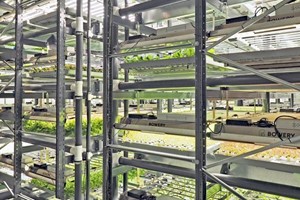In a collaborative effort between researchers at Lincoln Science Centre in New Zealand and Lancaster University in the UK, a groundbreaking study has shed light on the critical importance of optimizing phosphorus use in agriculture. Published in Nature Food under the title 'Phosphorus applications adjusted to optimal crop yields can help sustain global phosphorus reserves,' the study underscores the potential for significantly extending the lifespan of this finite resource through more efficient utilization.
Phosphorus stands as a cornerstone of agricultural productivity, being indispensable for robust plant growth and essential for global food production. However, concerns regarding the depletion of global phosphorus reserves have prompted urgent calls for more judicious management of this vital nutrient.
The study's findings highlight the prevailing inefficiencies within current agricultural practices, where a substantial amount of phosphorus is squandered, primarily through over-application of phosphorus fertilizers leading to runoff and environmental pollution. Moreover, certain regions face the paradoxical challenge of phosphorus deficiency, stunting crop yields and threatening food security.
Professor Phil Haygarth from Lancaster University, a co-author of the study, emphasized the pivotal role of phosphorus in driving food systems while stressing the imperative of responsible stewardship. He remarked, "Phosphorus is the 'energy' of agriculture, but we need to manage our supplies carefully. Our study demonstrates the considerable potential to enhance phosphorus fertilizer efficiency, safeguarding our precious and finite global reserves."
Proposing practical strategies to enhance phosphorus utilization, the researchers advocate for targeted application of phosphorus fertilizer to crops and soils in need, alongside the development of more efficient fertilizer formulations. Additionally, the study underscores the importance of improving phosphorus recycling from wastewater as a means to bolster sustainability.
The implications of adopting these strategies are profound. By optimizing phosphorus use, the lifespan of global reserves could be extended significantly, offering up to 531 years of supply—77 years longer than current projections based on prevailing practices. Such an extension not only ensures the availability of phosphorus for future generations but also addresses deficiencies in regions where access to this vital nutrient is limited.
Moreover, the study underscores the potential for substantial waste reduction, with approximately 10,556 kt of phosphorus wasted annually through over-application. By curbing such inefficiencies, more phosphorus could be redirected to areas facing shortages, thus bolstering agricultural productivity and enhancing global food security.
The study underscores the imperative of enhancing phosphorus use efficiency in agriculture to ensure sustainable food production in a world grappling with population growth and environmental challenges. By implementing targeted strategies to optimize phosphorus utilization, we can safeguard this precious resource for generations to come while bolstering agricultural resilience in the face of evolving global challenges.
Nature Food - Phosphorus applications adjusted to optimal crop yields can help sustain global phosphorus reserves














